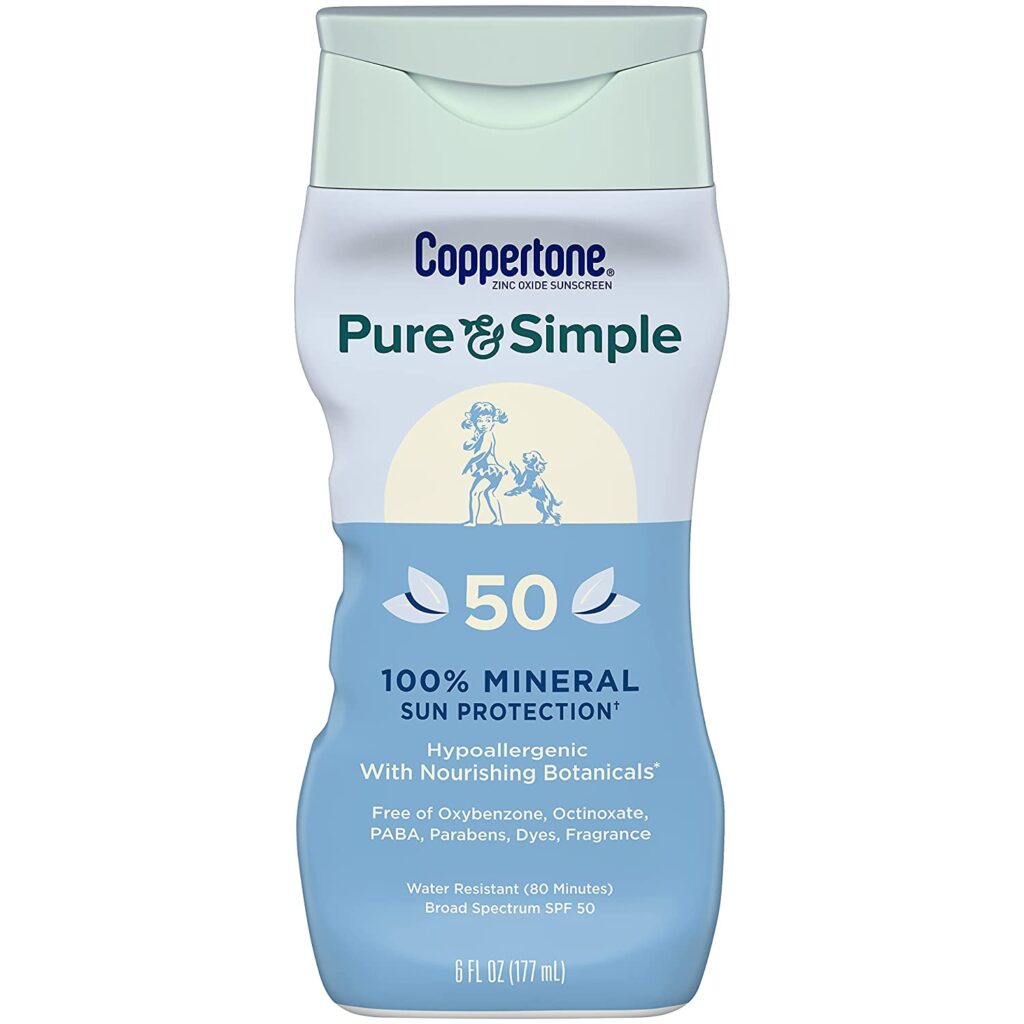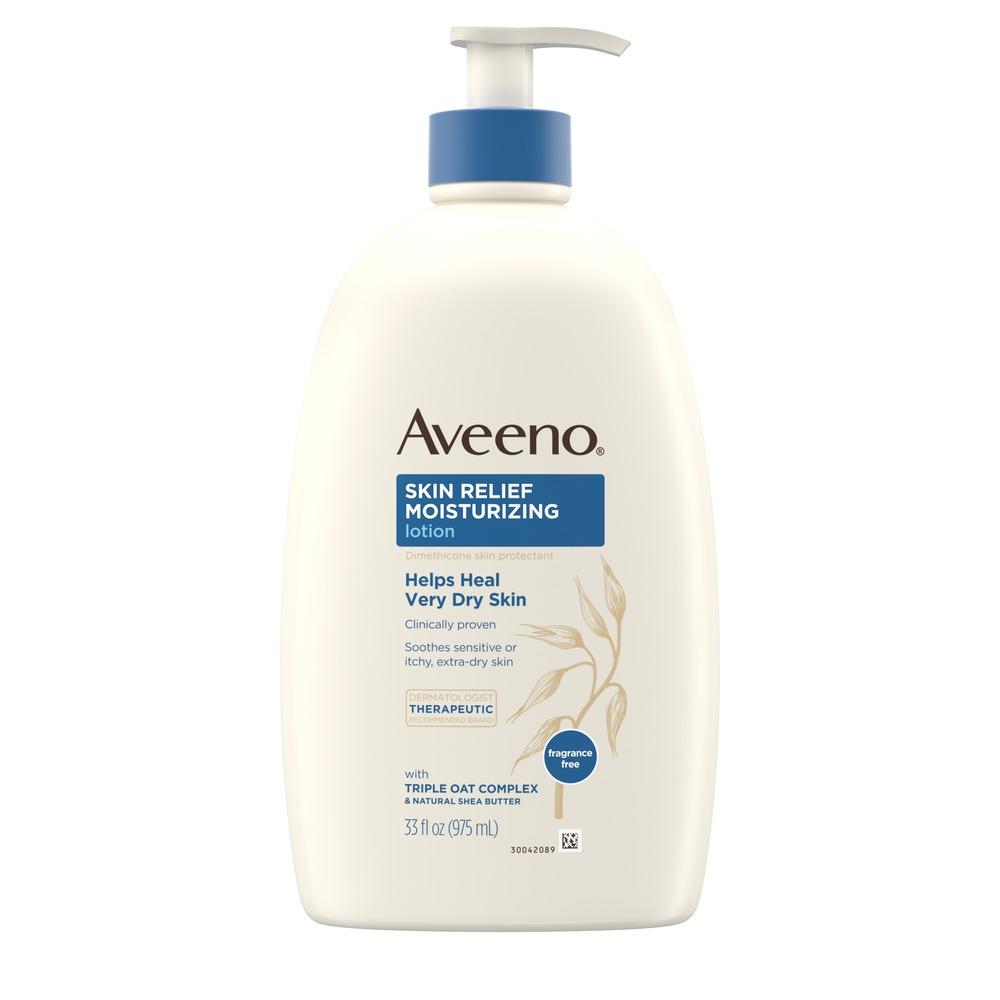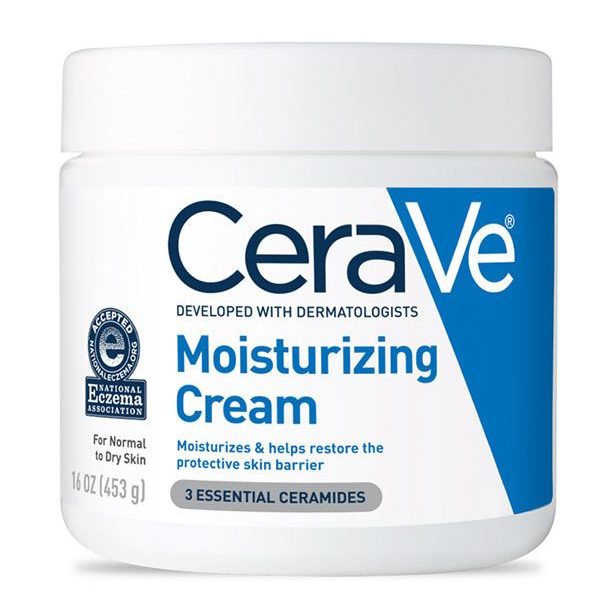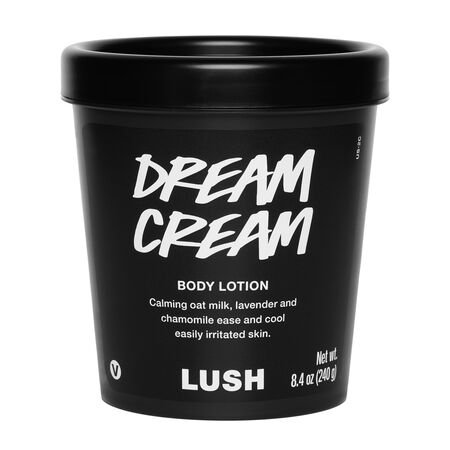
What’s up with dry, itchy, sensitive skin as we age? Here’s what I did about it.
About nine months ago, I was always itchy. It was winter and I’ve always had skin that was on the dry side, so I didn’t think much of it. Having moved into an apartment with central heat (a luxury in the San Francisco area), I figured it was just that winter itch from artificial hot air being blown on my skin 24/7. Surely an experience that would annoy any skin — and something that I previously only had to deal with on my annual trip home to Pennsylvania during the holidays.
But as winter turned to spring, my itching didn’t go away and I began to notice that there was a difference between this itch and my usual winter dryness. My skin would randomly turn red with a stronger reaction if I brushed it on any rough surface. At times, I would get unbearably itchy at night after dinner.
And so I wondered, is this another one of those midlife things no one tells you about? Does our skin get more sensitive as we get older? As a career research analyst well-versed in qualitative and quantitative testing methods, naturally, I did my research through reputable media, and further confirmed on biomedical literature. Turns out our skin can get more sensitive as we age.
Here’s why skin may get more sensitive as we age
The short of it: all skin has layers that protect the skin (from irritants, toxins and UV rays, and so forth), and as we age these protective layers begin to thin — so, less protection and more sensitivity.
There are several types of protection that decline as we age. (Oh fun!) First, there’s ceramides, fatty lipids that fill in the gaps between skin cells. Ceramides begin to decline in our 30s, and adding to that decline with exposure to harsh skin care products, over-scrubbing, and UV damage. With this protection shield lowered, not only does our skin freak out when exposed to irritants, it’s harder for our skin to retain moisture.
And then, there’s that hot beauty topic: collagen, the connective tissue that makes up 70% to 80% of skin. Our ability to produce collagen declines beginning in our 30s and declines by 1% to 1.5% every year. On top of that, hyaluronic acid, a sugar molecule that binds collagen, also declines with age. Collagen and hyaluronic acid together helps our skin stay moist, giving us that supple, dewy look that we miss as we age.
With all that bad news, let me uplift you with some good news: there are many solutions for combatting itchy, dry, sensitive skin. Advances and discoveries in dermatology and health are producing new solutions to sensitive skin problems. Here are a few that I’ve tried.
What I did about my itchy, sensitive skin
Switch to fragrance-free lotions that moisturize dryness and create a protective barrier
In my early 20s, I loved going to Bath & Body Works to try on various scented lotions. Back then, I wanted to smell nice and express myself through (non-au-naturale) scents that were sweet yet mysterious, Cherry Blossom or Midnight Moon. Those days are over and so are my sweet and mysterious ways. All I care about now is not itching and using high-quality products to take care of my sensitive skin.
Apparently, according to the American Academy of Dermatologists, fragrance is the leading offender when it comes to allergic reactions on skin. Fragrances are made up of chemicals that are considered trade secrets and therefore the formula can be simply labeled as “fragrance.” That means your skin could be sensitive to a chemical in the fragrance that’s causing an allergic reaction, and you wouldn’t even know it.
It’s important to note that “fragrance-free” and “unscented” are different. Look for products that are “fragrance-free,” which means no fragrance is added, whereas “unscented” means no scent, but fragrance could be added to neutralize the smell. If you’re unsure, check the list of ingredients to ensure there is no fragrance added to the product.
Here are a few sensitive skin lotions I’ve tried and what they’ve done for me. Please keep in mind that everyone’s skin is different, so be sure to skin patch-test before starting any lotion regimen.
My top pick for sensitive skin: Aveeno Skin Relief Moisturizing Lotion
Aveeno’s Skin Relief Moisturizing Lotion has been my favorite I’ve tried so far, and with 4.8 stars on Amazon in 16k+ reviews, it seems others agree that this lotion is quite the skin saver. This is the lotion I use daily for my sensitive skin. It contains shea butter and a triple colloidal oat complex, and it’s fragrance-free.
How it works:
- Strengthens skin barrier with oat. Colloidal oat has been a topical skin treatment for centuries, and there is scientific research confirming that oat works! Colloidal oat creates a film over the skin surface, helping protect and trap moisture in the skin.
- Soothes skin and reduces inflammation. Cellulose and fiber in oat soothes skin and phenols show anti-inflammatory and antioxidant properties.
Pros:
- My skin stays moisturized for 24 hours on most days
- I’ve experienced way less itching and redness
- Natural ingredients
- Affordable and readily available at drugstores
- Smells a bit like oats which is pleasant enough to me
Cons:
- The bottle’s mechanics need improvement; the pump can get stuck at times, leaving a lot of lotion left at the bottom after it stops pumping.
CeraVe Moisturizing Cream
If our dry, sensitive, grown-ass skin is due to a loss in ceramides and hyaluronic acid, then adding in ceramides and hyaluronic acid back in should do the trick, dontcha think? That’s what dermatologists came up with in the form of CeraVe Moisturizing Cream. Also loved by Amazon reviewers, with a 4.8 out of 5 stars, this dermatologist-developed cream does the job, and it’s fragrance-free, of course.
How it works:
- Restores skin’s natural barrier with ceramides. This cream uses three essential ceramides to lock in moisture and protect the skin. MVE technology (Multivesicular Emulsion), comprising layers of oil-in-water emulsions, results in efficient delivery of ceramides and a slower release over time, ensuring 24-hour protection.
- Hyaluronic acid retains moisture. Hyaluronic acid is a naturally occuring sugar in the body that attracts moisture like a sponge and locks it in, helping to smooth skin and improve plumpness and firmness.
Pros:
- My skin stays moisturized for a 24-hour period most days
- My skin’s redness and itching reduced with use
- The tub allows for easy application
- Affordable and readily available at drugstores
Cons:
- A slight sticky texture that’s not quite the same as lotion as I know it
- The smell is similar to Vaseline — not unpleasant, but also not pleasant
Lush Dream Cream
Lush describes Dream Cream this way: “luscious and calming, it’s the remedy that your skin dreams about.” It’s the brand’s solution for sensitive skin. Formulated with gentle ingredients, including oat, rose, cocoa butter, chamomile, and lavender, it’s lightly scented from these natural ingredients, making it a viable solution for those who’re not ready to give up on scent.
Note: Both natural and synthetic scent can irritate the skin, depending on individual sensitivities and allergies. Always patch test first.
How it works:
- Oat forms a protective barrier. Oat creates a film over the skin to protect the skin.
- Rose water and chamomile oil calms the skin. Both of these gentle ingredients are known for soothing skin, and chamomile is an anti-inflammatory that tones redness.
- Cocoa butter adds rich hydration. High in fatty acids, cocoa butter replenishes moisture and improves elasticity.
Pros:
- My skin stayed hydrated for 24 hours on most days
- I noticed reduced redness and itching
- A slight, calming smell of lavender and rose mixed with oat
- The tub allows for easy application
Cons:
- Only available at Lush stores (retail or online)
- Pricey
Supplement to hydrate skin from the inside out
Lotions help on a quick fix level — as in: we itch, so we lotion it up. But what about hydrating from the inside out? Skin supplements are currently all the rage. Collagen, fish oil, vitamin D, and vitamin C are popular supplement choices for skin hydration and health.
Collagen, in particular, is very having a moment. A 2019 study does show that peptide collagen can increase the hydration of skin after taking it for 12 weeks. Although my mom swears by collagen, I was unable to stick with it due to the slightly gelatin-y consistency and taste. If you do decide to try collagen, look for collagen peptides, which are formulated to be more easily absorbed through the skin.
Currently, I use both fish oil and vitamin D. Fish oil works by supporting the fatty acids in the skin. A 2018 study showed a 30% increase in skin hydration after 60 days. After getting a rash several years back, I found out through testing that I had a vitamin D deficiency and I began taking a vitamin D supplement. According to the American Academy of Dermatology, vitamin D supplementation can help increase the hydration of skin for those who are deficient. After taking the vitamin D, the rash went away. 42% of the U.S. population is vitamin D deficient, so it’s possible that this deficiency may contribute to skin sensitivity.
Because I take a combination of supplements, I cannot definitively say that a particular supplement is the key to more hydrated and less itchy skin. Ask your doctor or dermatologist about the right supplement for you.
More ways to help your dry, sensitive skin
Ditch the scent for fragrance-free laundry detergent
Since scent is a major allergy inducer for skin, switching out your laundry detergent for “free & clear” formulas made without scents or dyes also help to lessen irritation. Residue from laundry detergent can stay on clothes after the wash cycle and with clothes right next to our skin all day, scents from laundry detergent is another culprit to consider when trying to lessen that itch.
I’ve used Method’s Free and Clear detergent packs and Seventh Generation’s Concentrated EasyDose. Both have been effective cleaners that are much less irritating on my sensitive skin than scented laundry detergents.
Wear mineral sunscreen to protect skin
With the loss of lipids that protect our skin in midlife, it becomes even more important to protect our skin from UV rays and other harmful toxins and to slow down any further damage. For me, I’ve found it interesting that the skin on my face has not gotten more sensitive, only on the rest of my body. My facial moisturizer contains SPF 20 that I wear everyday regardless of whether I am going to be out in the sun, whereas I’ve been less diligent about wearing sunscreen on the rest of my body — proof to me that sunscreen is a must.

Those of us with sensitive skin should look for mineral or physical sunscreens that physically block UV rays, like Eucerin Sun Sensitive Mineral Sunscreen or Coppertone’s Pure and Simple. Mineral sunscreens are thicker and made with zinc oxide or titanium dioxide, small particles that sit on top of the skin deflecting rays before it hits the skin. Chemical sunscreens are absorbed into the skin and transform the UV rays into heat, then dissipated through the skin. Because of the ingredients used to make chemical sunscreen, it can cause irritation for those with sensitive skin. Traditionally, chemical sunscreens tend to be preferred for their lightness and lack of white residue left on the skin, though advances in physical sunscreens have improved and newer versions tend to have less residue on the skin, as I experience with the aforementioned products.
Be aware of food sensitivities and gut health
When our skin itches, our first inclination is to treat the skin. This direct correlation between the two makes sense, but our bodies are also one big system and if one part of it is not okay, it can affect other parts of the body.
As I became more aware of my skin sensitivity, I noticed that I would often get itchy in the evening after dinner and I was curious if there could be a correlation between my enhanced itchiness and my dinner. Apparently, there is. Research shows a gut-skin axis, meaning that if our gut’s not doing well, it can communicate this to us through skin conditions.
With this in mind, I noticed that sugar and carbs with preservatives can cause more of an itchy reaction for me. (Of course it’s the yummy foods that are not healthy that’s the culprit! Why can’t it be something I don’t like such as peas?!) So, I’ve cut back on these foods. But if I do choose to indulge I will take a probiotic or accompany my meal or dessert with a gut-soothing tea like chamomile, mint, or turmeric — which also have natural anti-inflammatory properties. Hmm, what a coincidence!
If you feel food sensitivities could be the cause for your itchiness, ask your doctor about conducting a food sensitivities test, or there are home tests available as well. The more you understand your body and what could be causing skin sensitivities, the more you’ll be able to take steps to live a more comfortable, itch-less life.
Read more tips on skincare in your 40s on The Midst.
Sorry, the comment form is closed at this time.







DJ Smith
I too have itchy skin, just noticing it more and more this past year. I’m 75. Mostly my calves and ankles. Thank you for these recommendations. I use Silicone Glove by Avon for my hands. The best non sticky cream. Vasoline on lips. I live in Las Vegas.
DJ